
Find Help
More Items From Ergsy search
-

What is spinal anaesthesia?
Relevance: 100%
-
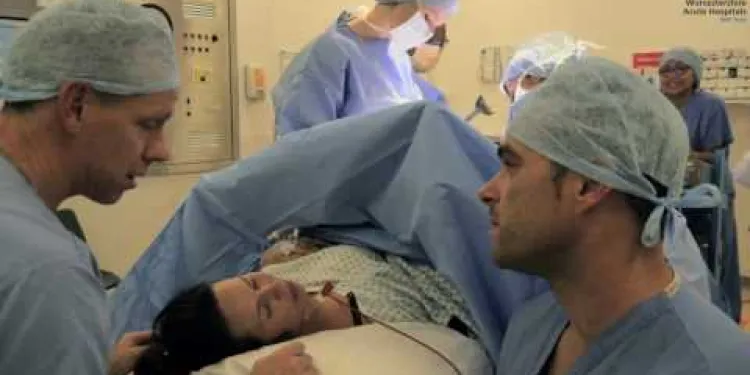
Spinal Anaesthesia for Caesarean Section
Relevance: 95%
-

How will I be positioned for spinal anaesthesia?
Relevance: 92%
-

Is spinal anaesthesia safe for a Caesarean section?
Relevance: 90%
-

How is spinal anaesthesia different from an epidural?
Relevance: 88%
-

What should I do to prepare for spinal anaesthesia?
Relevance: 88%
-

What are the common side effects of spinal anaesthesia?
Relevance: 87%
-

What should I expect after the spinal anaesthesia wears off?
Relevance: 79%
-

Can I breastfeed immediately after a Caesarean section under spinal anaesthesia?
Relevance: 76%
-

What type of anaesthesia is used during hip replacement surgery?
Relevance: 60%
-

Does IVF require anesthesia?
Relevance: 48%
-

Anaesthetic procedure for elective caesarean section (C section)
Relevance: 45%
-

Can spinal anaesthesia affect my baby?
Relevance: 44%
-
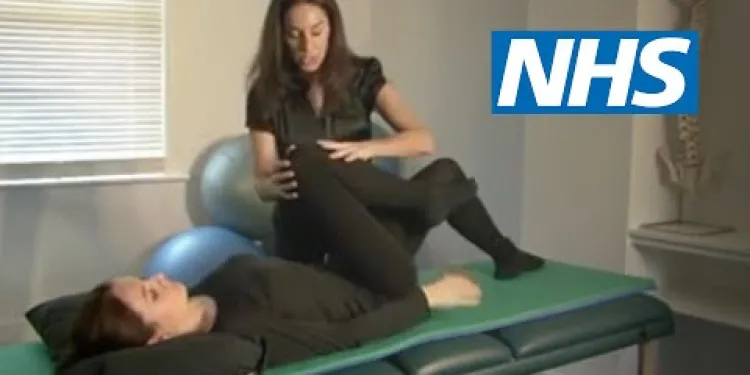
Exercises for sciatica: spinal stenosis | NHS
Relevance: 44%
-

Making a spinal brace for a scoliotic patient at the RNOH
Relevance: 42%
-

What are the alternatives to spinal anaesthesia for a Caesarean section?
Relevance: 41%
-

How long does spinal anaesthesia last?
Relevance: 41%
-

Your anaesthetic choices for your planned hip or knee replacement surgery at the RUH.
Relevance: 35%
-

Will I be awake during a C-section?
Relevance: 35%
-

Charlie and Rupert on their journey with Spinal Muscular Atrophy and Zolgensma Gene Therapy
Relevance: 33%
-
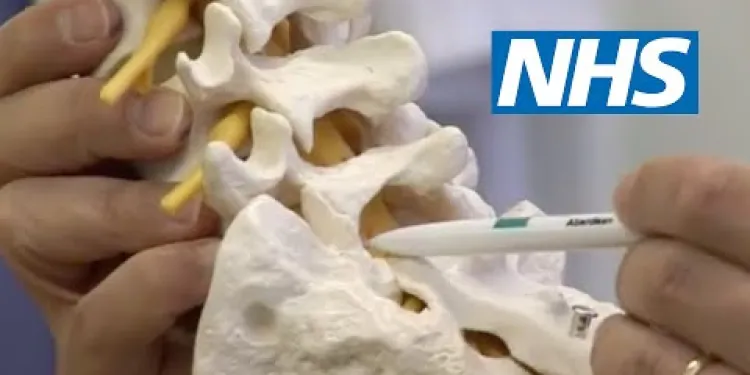
Lumbar surgery | NHS
Relevance: 29%
-

Having a Caesarean Section
Relevance: 24%
-

What is a Caesarean birth?
Relevance: 24%
-

Having a planned caesarean section
Relevance: 23%
-

What is a lumbar puncture?
Relevance: 23%
-

Hip replacement
Relevance: 22%
-

Will I feel pain during the procedure?
Relevance: 22%
-

Knee replacement
Relevance: 21%
-

Can my partner be with me during the Caesarean section?
Relevance: 20%
-

My General Anaesthetic: What's Going To Happen? Sarah's Story at Worcestershire Royal Hospital.
Relevance: 20%
-

How do chiropractors treat back pain?
Relevance: 20%
-
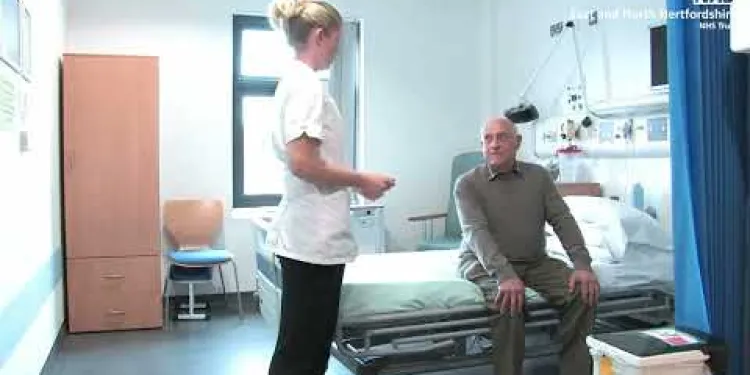
A journey to hip surgery
Relevance: 19%
-

Your Caesarean birth
Relevance: 19%
-

What to expect on the day of your operation
Relevance: 17%
-

Is a facelift painful?
Relevance: 17%
-
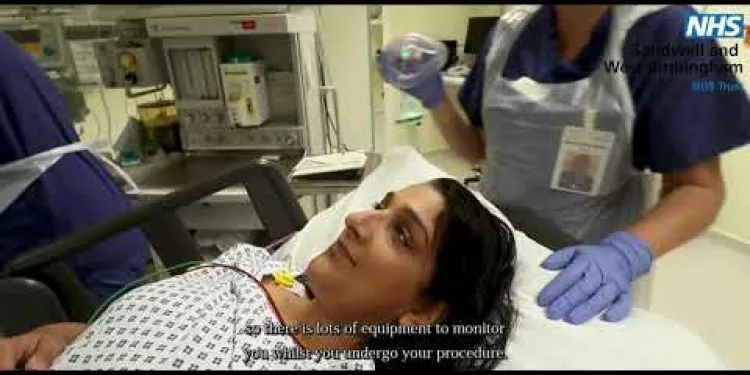
What to expect when visiting our hospitals for surgery | Theatres
Relevance: 16%
-
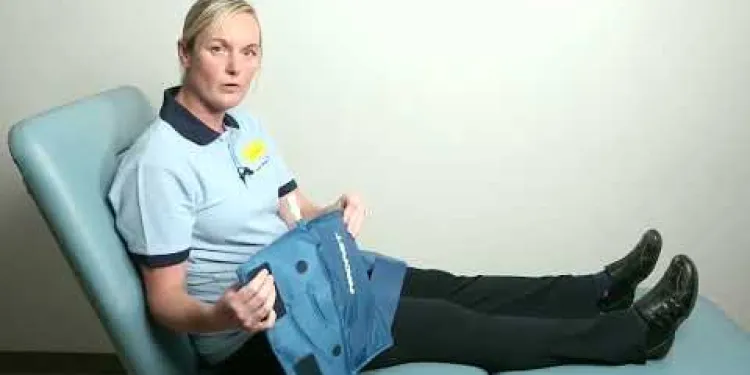
Total Knee Replacement
Relevance: 16%
-

Undergoing day case surgery at University Hospitals Bristol
Relevance: 16%
-
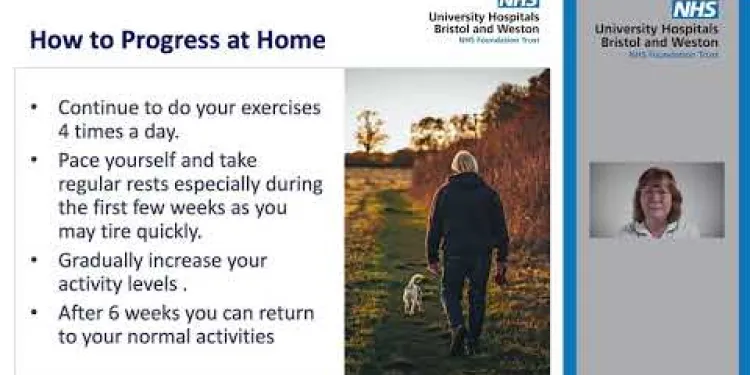
Enhanced Recovery - Hip
Relevance: 16%
-

Top 5 questions about having a general anaesthetic
Relevance: 16%
Introduction to Spinal Anaesthesia
Spinal anaesthesia is a common procedure used to numb the lower part of the body for surgeries such as cesarean sections, lower limb operations, and some abdominal surgeries. This type of anaesthetic involves injecting medication into the fluid surrounding the spinal cord, resulting in temporary loss of sensation and movement in the lower half of the body. Understanding what to expect as the anaesthetic wears off can help in managing recovery effectively.
Immediate After-effects
After the procedure, as spinal anaesthesia begins to wear off, patients may notice a gradual return of feeling and movement in their lower body. The duration can vary, but typically, the effects start to diminish after 2 to 4 hours. Initially, you may experience tingling sensations or slight discomfort as numbness fades away. It's important to remain in the hospital or under medical supervision during this time until you are able to move safely on your own.
Resuming Mobility
Once sensation returns, you will be encouraged to start moving your legs and feet. This is a crucial step as it helps to improve circulation and reduce the risk of blood clots. Nurses or physiotherapists may assist you in taking your first steps after the operation. It’s normal to feel wobbly or weak initially, but strength should gradually return with movement. Follow your healthcare provider's advice on when to restart activity and avoid strenuous exercise until you fully recover.
Pain Management
As the anaesthetic wears off, you might experience some discomfort or pain at the incision site or surgical area. Your healthcare team will provide appropriate pain relief medication to manage this transition. It is essential to communicate openly with your medical team about your pain levels to ensure effective management. Avoid taking any medication not prescribed by your doctor, as it may interfere with your recovery.
Potential Side Effects
While spinal anaesthesia is generally safe, some patients may experience side effects as it wears off. Common side effects include headaches, backache at the injection site, or mild nausea. In rare cases, more significant complications such as neurological symptoms may occur. If you experience severe symptoms like persistent headache, vision changes, or difficulty urinating, contact your healthcare provider immediately for assessment and assistance.
Long-term Considerations
For most patients, the effects of spinal anaesthesia wear off completely without long-term issues. However, it is crucial to follow post-operative instructions provided by your healthcare team for optimal recovery. This may include guidelines for wound care, activity levels, and follow-up appointments. Understanding these recommendations will help in achieving a smooth and swift recovery.
Conclusion
Recovering from spinal anaesthesia involves a gradual return of sensation and mobility, with management of any post-operative discomfort or potential side effects. Collaboration with your healthcare team and adherence to their guidance will support a safe and effective recovery process. If any concerns arise, do not hesitate to seek medical advice promptly.
Intro to Spinal Anaesthesia
Spinal anaesthesia is a way to numb the lower part of your body. Doctors use it for surgeries like having a baby through cesarean, or operations on your legs or tummy. The doctor puts medicine in the liquid around your spinal cord. This makes you stop feeling and moving the lower half of your body for a while. Knowing what will happen as the feeling comes back can help you feel better about recovery.
What Happens Right After
After the procedure, the numbness from spinal anaesthesia will slowly go away. You may start to feel and move your lower body again in about 2 to 4 hours. At first, you might feel tingling or a bit uncomfortable as the numbness goes away. It’s important to stay in the hospital or with a doctor until you can move safely by yourself.
Moving Again
When you start to feel your legs, you should try to move them. This helps your blood flow and keeps blood clots away. Nurses or therapists can help you walk after the surgery. It might feel shaky at first, but your strength will come back. Listen to your doctor about when to be active again, and don’t do hard exercise until you are better.
Dealing with Pain
When the anaesthesia wears off, you might feel pain where you had surgery. Your healthcare team will give you medicine to help with the pain. Always tell your doctor how much pain you have, so they can help you. Don’t take any medicine unless your doctor says it’s okay, because it could make recovery harder.
Possible Side Effects
Most of the time, spinal anaesthesia is safe, but some people may have side effects. You might get a headache, a sore back where the needle went in, or feel a bit sick. Rarely, more serious problems can happen. If you have a bad headache, changes in your vision, or trouble peeing, call your doctor right away.
Things to Remember Long-term
For most people, spinal anaesthesia doesn’t cause long-term problems. It is very important to follow the instructions from your healthcare team to get better fast. This might include how to care for your wound, when you can move around, and visiting your doctor again. Knowing these things can help you recover smoothly.
In Summary
Getting better from spinal anaesthesia means getting feeling and movement back slowly, and dealing with any pain or side effects. Work with your healthcare team and listen to their advice for a safe recovery. If you have any worries, talk to a doctor right away.
Frequently Asked Questions
What sensations will I feel as spinal anesthesia wears off?
You may begin to feel tingling or pins and needles as sensation returns to your legs. This is followed by a gradual return of feeling and function.
How long does it take for spinal anesthesia to wear off completely?
Spinal anesthesia typically wears off within 2 to 4 hours, but this can vary depending on the type and dose of anesthetic used.
Will I feel any pain as the anesthesia wears off?
You may start to feel mild discomfort or pain as the anesthesia wears off. It is important to inform your medical team so they can manage your pain effectively.
Can I move my legs immediately after spinal anesthesia wears off?
Initially, you may find it difficult to move your legs, but movement typically returns gradually as the anesthesia wears off.
Is it normal to feel cold as the spinal anesthesia wears off?
Yes, feeling cold or shivering can be a common side effect as the anesthesia wears off. It is usually harmless and temporary.
Will I experience any side effects after spinal anesthesia?
Common side effects may include headache, nausea, or back soreness. However, these are usually temporary and manageable.
How soon can I eat or drink after spinal anesthesia?
You can usually eat or drink once you are fully alert and your medical team approves. Start with small sips of water to ensure there is no nausea.
When can I stand or walk after the anesthesia wears off?
You should only attempt to stand or walk when advised by a healthcare professional, as you may still have some numbness or weakness.
How will I know if the spinal anesthesia is wearing off properly?
Your healthcare team will monitor your recovery and ensure sensation and motor function return appropriately.
What should I do if I experience severe pain after spinal anesthesia?
Inform your healthcare provider immediately so that they can assess and manage your pain effectively.
Could there be any long-term effects after spinal anesthesia?
Long-term effects are rare, but if you experience persistent issues such as back pain or numbness, consult your healthcare provider.
Is dizziness normal after spinal anesthesia?
Yes, some patients experience dizziness as they regain sensation and movement. It is usually temporary.
Should I avoid any activities after spinal anesthesia?
Avoid strenuous activities or heavy lifting for the first 24 to 48 hours or until your doctor advises it's safe to resume normal activities.
Can I drive home after spinal anesthesia?
No, you should not drive until you have full sensation and motor control back. Arrange for someone to drive you home.
Is it safe to breastfeed after spinal anesthesia?
Yes, it is generally safe to breastfeed after spinal anesthesia, but confirm with your doctor for any specific concerns.
What precautions should I take at home after spinal anesthesia?
Ensure you rest adequately, stay hydrated, and follow any specific instructions provided by your healthcare provider.
Can spinal anesthesia affect urination?
Yes, it may temporarily affect your ability to urinate. Inform your healthcare team if you experience difficulties so they can provide assistance.
What should I do if I experience a headache after spinal anesthesia?
A headache can occur and is sometimes treated with hydration, caffeine, or medication. Contact your healthcare provider if it persists.
How soon can I resume normal activities after spinal anesthesia?
You can gradually resume normal activities as you feel comfortable, but follow any specific advice given by your healthcare provider.
Will there be follow-up care after receiving spinal anesthesia?
Your healthcare provider may offer follow-up care instructions or appointments to monitor your recovery and address any concerns.
What will I feel when the numbness from spinal anesthesia goes away?
You might start to feel a tingle or like little pins in your legs. This means your legs are waking up. After that, you will slowly be able to feel and move your legs again.
When does the feeling come back after spinal anesthesia?
Spinal anesthesia makes you numb for a little while. It usually stops working after 2 to 4 hours. But sometimes it can take more or less time, depending on the medicine and how much you get.
Will it hurt when the medicine stops working?
You might start to feel a little bit of pain when the medicine that stops pain wears off. Tell your doctor or nurse so they can help you feel better.
Can I move my legs after the medicine wears off?
When you get special medicine for an operation, it makes it hard to move your legs. This is called spinal anesthesia. After the operation, it takes some time for the medicine to wear off.
When the medicine is gone, you can start to move your legs again. This might take some time, so don’t worry if it doesn’t happen right away. It's important to rest and be patient.
If you have trouble moving, you can ask a doctor or nurse for help. They can tell you what to expect and give you good advice.
You can also try deep breathing to help your body relax.
At first, it might be hard to move your legs. But don't worry, you will slowly start to move them again as the medicine goes away.
Is it normal to feel cold when the spinal anesthesia stops working?
Yes, feeling cold or shaking can happen after surgery. This is because the medicine used to make you sleep during the operation is going away. It does not last long and is usually not something to worry about.
Will I feel different after getting spinal anesthesia?
When you have spinal anesthesia, it might make your body feel different. Some people feel dizzy or sick in their tummy. You might also feel sleepy or have a headache.
If you have any worries, talk to your doctor or nurse. They can help you and make sure you feel better.
To make it easier, you can:
- Ask someone you trust to be with you.
- Write down your questions before you see the doctor.
- Use pictures or drawings to understand better.
Sometimes, people might get a headache, feel sick in their tummy, or have a sore back. But don't worry, these usually go away soon and can be taken care of easily.
When can I eat or drink after having a spinal injection?
Spinal injection: This is a medicine that makes you numb for surgery.
After you have a spinal injection, doctors will tell you when you can eat or drink.
You might have to wait a little while before eating or drinking.
The doctor knows best, so listen to what they say.
Here are some tips to help you:
- Ask a nurse or doctor if you have questions.
- Drink something clear, like water, when you can.
- Start with small sips or bites.
- If you feel sick, let someone know.
After your doctor says it’s okay, you can start eating and drinking when you feel fully awake. Begin with little sips of water to make sure you don't feel sick.
When can I stand up and walk after the medicine wears off?
After you have surgery, you might get some special medicine called anesthesia. This medicine helps you not feel pain. Once the medicine goes away, you will start to feel normal again.
It is important to be safe. Ask a nurse or doctor when you can stand up and walk. They will tell you when your body is ready.
If you feel dizzy, sit down right away. It's okay to ask for help.
Some tools that can help are:
- Having a family member or friend with you.
- Using a walker or cane if you need extra support.
Always listen to how your body feels and talk to your doctor if you are not sure.
Ask your doctor or nurse if it is okay to stand or walk. Your legs might still feel numb or weak, so it is important to get help first.
How do I know if the spine medicine is going away properly?
Here is how you can tell:
- First, you might feel a little tingling in your legs.
- Then, you can start moving your legs again.
- After that, feeling comes back slowly to your legs.
If you are not sure, ask your nurse or doctor for help.
Things that can help:
- Have a family member or friend with you.
- Use your phone to set reminders on how you are feeling.
Your doctor and nurse will check how you are getting better. They will make sure you can feel and move your body like normal.
What should I do if I have strong pain after a spinal injection?
Tell your doctor or nurse right away, so they can help with your pain.
Can having spinal anesthesia cause problems later on?
Visit the Doctor if You Have Problems
Big problems later on are rare. But if you keep having problems like back pain or feeling numb, go and talk to your doctor.
Is it normal to feel dizzy after spinal anesthesia?
Spinal anesthesia can make you feel dizzy. This happens to some people after the medicine. If you feel dizzy, tell a nurse or doctor.
Here are some tips to help:
- Sit or lie down if you feel dizzy.
- Take deep breaths to feel calmer.
- Drink water slowly.
When in a hospital, you can ask for help if you feel dizzy.
Yes, some people feel dizzy when they start to feel and move again. This usually goes away soon.
Can I do all activities after spinal anesthesia?
If you had spinal anesthesia, make sure to rest right after. Later, try doing gentle activities.
Here are some tips:
- Take short walks to help recovery.
- Avoid lifting heavy things.
- Ask your doctor if unsure about an activity.
- Use reminders to take breaks and not do too much.
Don't do hard exercises or lift heavy things for the first 1 to 2 days. Wait until your doctor says it's okay to do your usual activities.
Is it okay to drive home after having spinal anesthesia?
Spinal anesthesia is a type of medicine that makes you numb for a while. It helps during some operations.
After having spinal anesthesia, it is not safe to drive yourself home. Your body needs time to feel normal again.
Ask a family member or a friend to drive you home.
You can also use a taxi or a ride service to help you get home safely.
No, do not drive until you can feel everything and move properly again. Ask someone to take you home.
Can I breastfeed safely after having an injection in my back to stop pain?
Yes, it is usually safe to breastfeed after you have had spinal anesthesia. But make sure to ask your doctor if you have any worries.
What should I do at home after having spinal anesthesia?
Make sure you get enough sleep, drink plenty of water, and listen to any special advice from your doctor.
Does spinal anesthesia change how you pee?
Yes, it might make it hard for you to pee for a little while. Tell your doctor or nurse if you have trouble so they can help you.
What to do if you have a headache after spinal anesthesia?
If you have a headache after spinal anesthesia, tell a doctor or nurse. They can help you feel better.
Rest: Lie down and stay still. This can help the headache go away.
Drink: Have plenty of water or juice. This helps your body stay healthy.
Medicine: Take medicine that a doctor gives you. It can help stop the headache.
Ask someone for help if you need it. They can stay with you and keep you company.
A headache is when your head hurts.
Sometimes, drinking water can help make it better.
A little bit of coffee or tea can also help.
Taking medicine can make the headache go away too.
If your head keeps hurting, talk to your doctor.
You can ask someone to help you read and understand this.
When can I start doing normal things after having spinal anesthesia?
You can slowly go back to doing your regular activities when you feel ready. But remember to listen to any special advice from your doctor.
Will I get care after spinal anesthesia?
Yes, you will get care after spinal anesthesia. The doctor and nurses will check on you to make sure you are okay.
Some things they might do include:
- Checking your blood pressure
- Making sure you can move your legs
- Asking if you feel okay
If you need help talking or understanding, you can ask a friend or family member to come with you. You can also use pictures or notes to help you understand.
Your doctor might give you plans for check-ups or meetings to make sure you are getting better. They can also help if you have any worries.
Useful Links
This website offers general information and is not a substitute for professional advice.
Always seek guidance from qualified professionals.
If you have any medical concerns or need urgent help, contact a healthcare professional or emergency services immediately.
- Ergsy carfully checks the information in the videos we provide here.
- Videos shown by Youtube after a video has completed, have NOT been reviewed by ERGSY.
- To view, click the arrow in centre of video.
- Most of the videos you find here will have subtitles and/or closed captions available.
- You may need to turn these on, and choose your preferred language.
- Go to the video you'd like to watch.
- If closed captions (CC) are available, settings will be visible on the bottom right of the video player.
- To turn on Captions, click settings .
- To turn off Captions, click settings again.
More Items From Ergsy search
-

What is spinal anaesthesia?
Relevance: 100%
-

Spinal Anaesthesia for Caesarean Section
Relevance: 95%
-

How will I be positioned for spinal anaesthesia?
Relevance: 92%
-

Is spinal anaesthesia safe for a Caesarean section?
Relevance: 90%
-

How is spinal anaesthesia different from an epidural?
Relevance: 88%
-

What should I do to prepare for spinal anaesthesia?
Relevance: 88%
-

What are the common side effects of spinal anaesthesia?
Relevance: 87%
-

What should I expect after the spinal anaesthesia wears off?
Relevance: 79%
-

Can I breastfeed immediately after a Caesarean section under spinal anaesthesia?
Relevance: 76%
-

What type of anaesthesia is used during hip replacement surgery?
Relevance: 60%
-

Does IVF require anesthesia?
Relevance: 48%
-

Anaesthetic procedure for elective caesarean section (C section)
Relevance: 45%
-

Can spinal anaesthesia affect my baby?
Relevance: 44%
-

Exercises for sciatica: spinal stenosis | NHS
Relevance: 44%
-

Making a spinal brace for a scoliotic patient at the RNOH
Relevance: 42%
-

What are the alternatives to spinal anaesthesia for a Caesarean section?
Relevance: 41%
-

How long does spinal anaesthesia last?
Relevance: 41%
-

Your anaesthetic choices for your planned hip or knee replacement surgery at the RUH.
Relevance: 35%
-

Will I be awake during a C-section?
Relevance: 35%
-

Charlie and Rupert on their journey with Spinal Muscular Atrophy and Zolgensma Gene Therapy
Relevance: 33%
-

Lumbar surgery | NHS
Relevance: 29%
-

Having a Caesarean Section
Relevance: 24%
-

What is a Caesarean birth?
Relevance: 24%
-

Having a planned caesarean section
Relevance: 23%
-

What is a lumbar puncture?
Relevance: 23%
-

Hip replacement
Relevance: 22%
-

Will I feel pain during the procedure?
Relevance: 22%
-

Knee replacement
Relevance: 21%
-

Can my partner be with me during the Caesarean section?
Relevance: 20%
-

My General Anaesthetic: What's Going To Happen? Sarah's Story at Worcestershire Royal Hospital.
Relevance: 20%
-

How do chiropractors treat back pain?
Relevance: 20%
-

A journey to hip surgery
Relevance: 19%
-

Your Caesarean birth
Relevance: 19%
-

What to expect on the day of your operation
Relevance: 17%
-

Is a facelift painful?
Relevance: 17%
-

What to expect when visiting our hospitals for surgery | Theatres
Relevance: 16%
-

Total Knee Replacement
Relevance: 16%
-

Undergoing day case surgery at University Hospitals Bristol
Relevance: 16%
-

Enhanced Recovery - Hip
Relevance: 16%
-

Top 5 questions about having a general anaesthetic
Relevance: 16%


